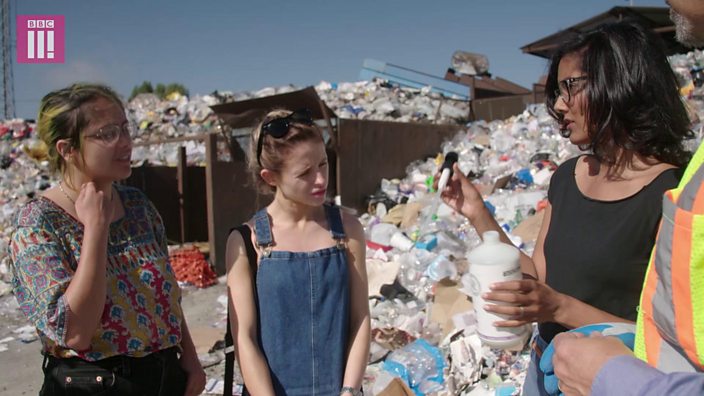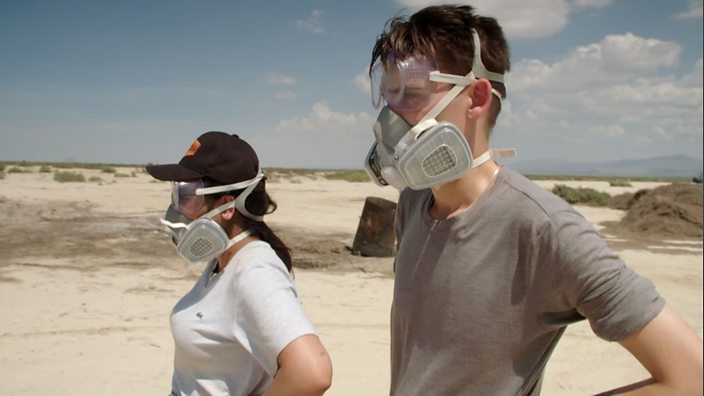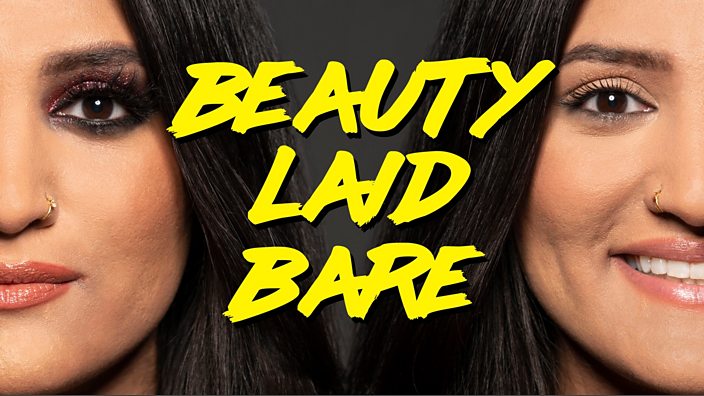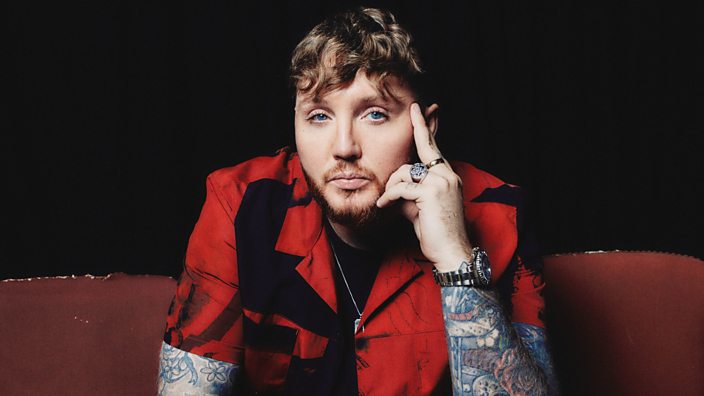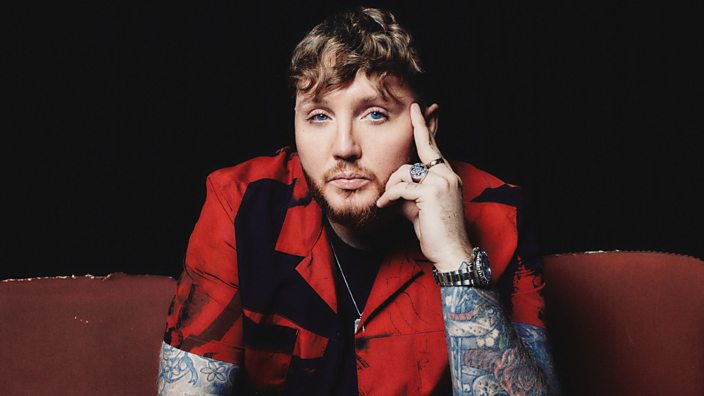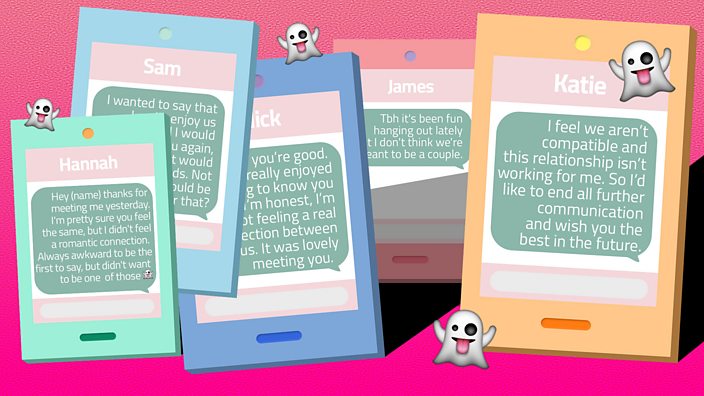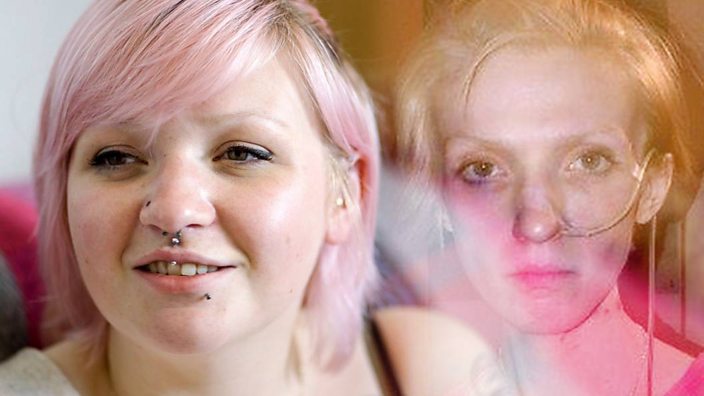 BBC Three
BBC ThreeLiving with diabulimia, the world’s most dangerous eating disorder
You don’t get a day off when you’ve got diabetes. Every day is about blood sugar levels, needles and numbers.
When you’ve got diabetes and an eating disorder, well, that’s a lot of numbers dictating your life, from calorie counting to watching the scales.
I have diabulimia. The term is a combination of diabetes and bulimia, and it’s used to describe someone with type 1 diabetes who deliberately reduces the amount of insulin they take to lose weight – someone like me.
I was diagnosed with type 1 diabetes 10 years ago, aged 19. Unlike type 2 diabetes, which is linked to your diet and lifestyle, type 1 is an autoimmune disease. It has no known cause and can’t be cured.
I couldn’t shake the idea that people would assume my diabetes was caused by my weight.
The basic science behind diabulimia is that, without insulin to process glucose, the body cannot break down sugars from food to use as energy. Instead, the body's cells break down fat already stored in the body, flushing out the excess sugar through the urine. If there’s not fat to burn, the body will start burning through muscle and organs.
Some people binge eat and then omit their insulin - but I just starved myself, as well as omitting insulin.
The worst cases result in heart failure, loss of limbs, and death. I’ve had to resort to crutches numerous times over the last couple of years, because of the damage I’ve done to my feet.
Through not taking insulin, the bones in my feet have disintegrated into what the Doctor described as “honeycomb and mush”, meaning they’re so fragile they regularly break. The nerve damage is so bad I can’t even feel it – I can just see how swollen they are.
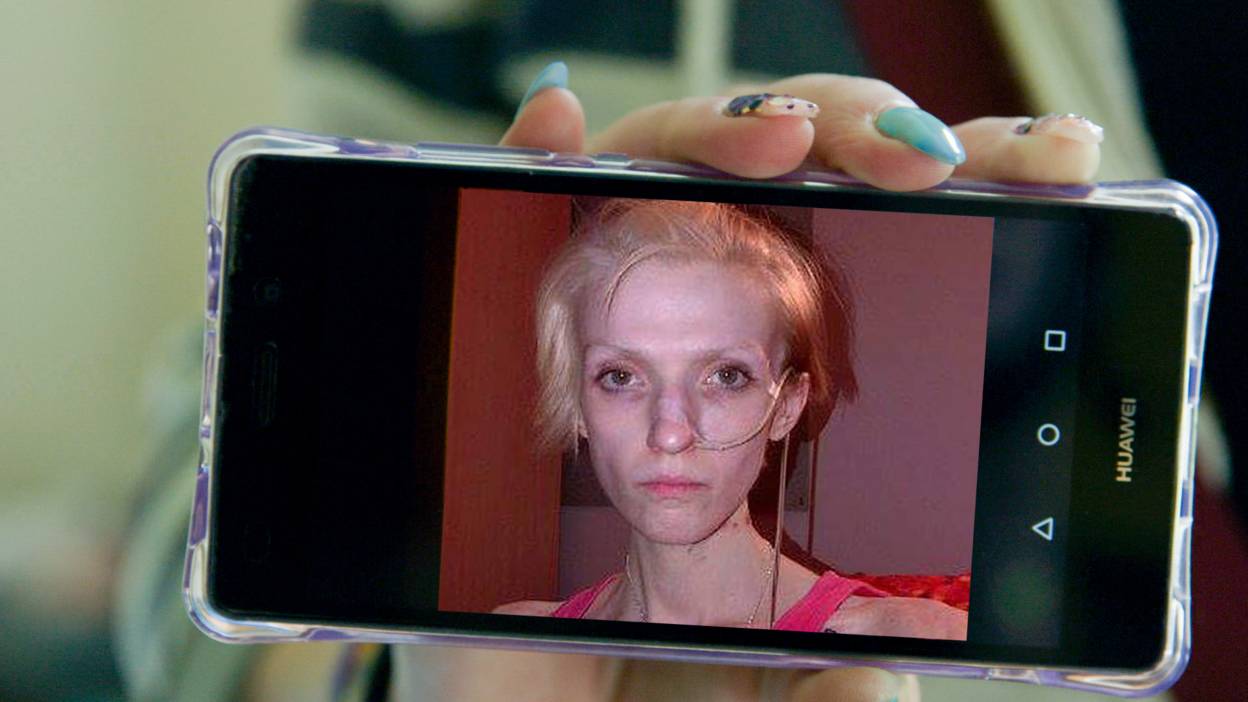 BBC Three
BBC Three
But at least I’m alive.
In the UK, 400,000 people live with type 1 diabetes, meanwhile Canadian research suggests as many as 60% of female type 1 sufferers have experienced an eating disorder by age 25.
Yet diabulimia is still not officially recognised as a medical condition, meaning specialised help is scarce, and many of us are falling through the cracks.
Diabetics With Eating Disorders (DWED) have been campaigning for years to have it recognised as a mental illness. Jacqueline Allan runs the charity and knows just how difficult it can be for sufferers seeking treatment. She started the charity back in 2009 after a friend died from it. "Technically, diabulimia doesn’t exist. It’s not in any of the big [medical] manuals or classified diseases" she explains.
Now, diabulimia the subject of the new BBC Three documentary, Diabulimia: The World’s Most Dangerous Eating Disorder.
I’d struggled with an undiagnosed eating disorder from around the age of eight. I was bullied throughout primary and secondary school, and saw myself as much bigger than I was. I skipped meals to the point where I had all the tell-tale signs of anorexia, such as fuzz on my face and arms, but I wasn’t diagnosed with the condition until I was 20.
I kept it hidden from my family, by lying about what and when I’d eaten. I was constantly in dance classes, which is how I explained the weight loss.
The realisation that I could quickly lose weight by not injecting my insulin was incredibly triggering. Then I started to cut out food as well as insulin. It all spiralled from there.
The diabetes and the eating disorder fuelled each other. When you’re diabetic, you’re told to keep a close record of your food, with strict rules about what you can and can’t have. So I just became obsessed with label reading – which just exacerbated the eating disorder.
But, a year after my diabetes diagnosis, after going into a diabetic coma three times, I was referred to a mental health team and my eating disorder was finally recognised and diagnosed. I'd had it for nearly 12 years.
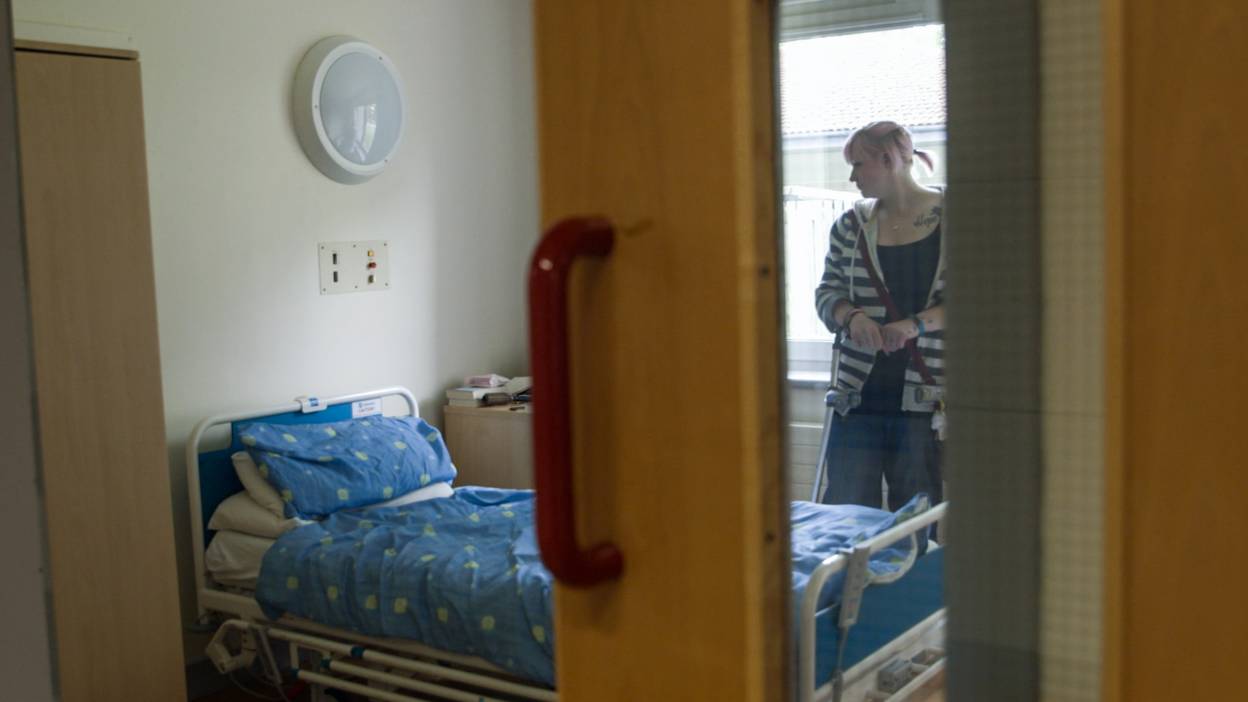 BBC Three
BBC Three
Becky in her old ward
In 2011, aged 22, I got a bed at the Eden Unit, an inpatient eating disorder service based in Aberdeen. I was in and out of the unit for about three years, spending around 16 months as an inpatient and 16 months as a day patient.
The last time I was admitted, in 2013, I was so frail that I was sectioned - meaning that all power over my medication, my phone, anything, was taken away from me. I actually made the request to be sectioned myself, realising it might be my last chance.
I couldn’t physically eat - I was too scared - so they fed me through a tube. I knew if I ate something I’d have to take insulin with it – and it was the last thing I wanted to do. I didn’t want to put on the weight.
Looking back at the photos of me at my worst is upsetting. But it’s a good reminder of where I don’t want to be.
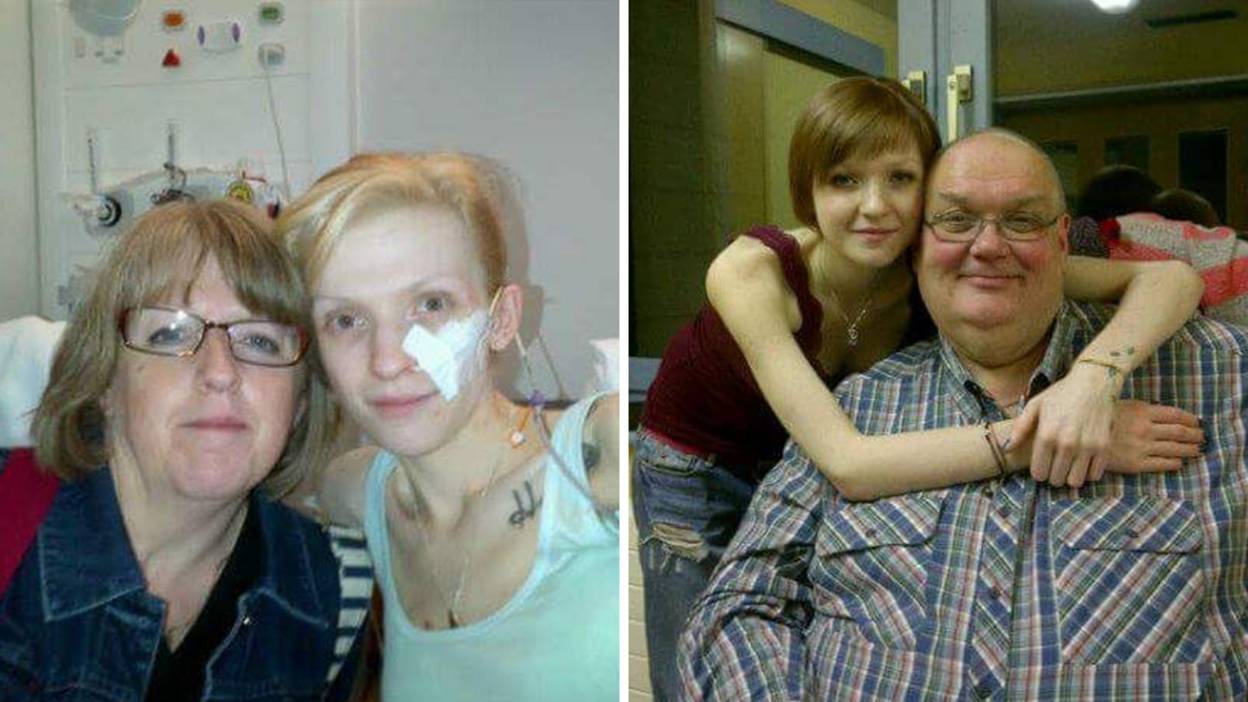 Becky
Becky
Old photos of Becky with her parents.
I had to retrain my brain on how to think about insulin, and how to stop fearing food. I found it really difficult to know that my clothes size was going up, and having to shift my outlook on that. I knew that the bigger I was, the safer I was – and yet I felt like my confidence was completely tied to how thin I was.
Tackling diabulimia is about taking back control: control of my insulin, control of my food, and control of my life.
Finally, I felt like I was getting my life back.
But I’ve been lucky. The complications and risks associated with diabulimia are huge.
With treatment for this condition being so new, the staff and patients at the Eden Unit went on a learning curve together.
“The issue with diabulimia and the issue of eating disorders being looked at in terms of weight is it doesn’t work in this illness. The second you stop taking your insulin you’re on the clock, you’re in the same amount of danger regardless of what your weight is.” says Jacqueline Allan of Diabetics With Eating Disorders (DWED).
Professor Khalida Ismail leads the largest diabetes and mental health clinic in the UK at King’s College in London. She told BBC Three, “You can look quite well, and have a normal body size, and yet because you’re restricting insulin, inside you are running very high blood sugars, and these high blood sugars are increasing your risk of damaging your eyes and going blind, damaging your kidneys and needing a kidney transplant, and damaging your nerve endings.”
As Professor Khalida explains, “Patients are falling through the net. There is a real lack of care for patients who have diabulimia in the UK. I have heard of patients who have died while waiting to get the right care.”
One of those patients was Lisa Day who died in 2015, aged just 27.
Her sister told the BBC, "If Lisa had help 10 years ago maybe she'd still be here.”
For me, it was the Eden Unit, and asking to be sectioned when I did, that saved my life.
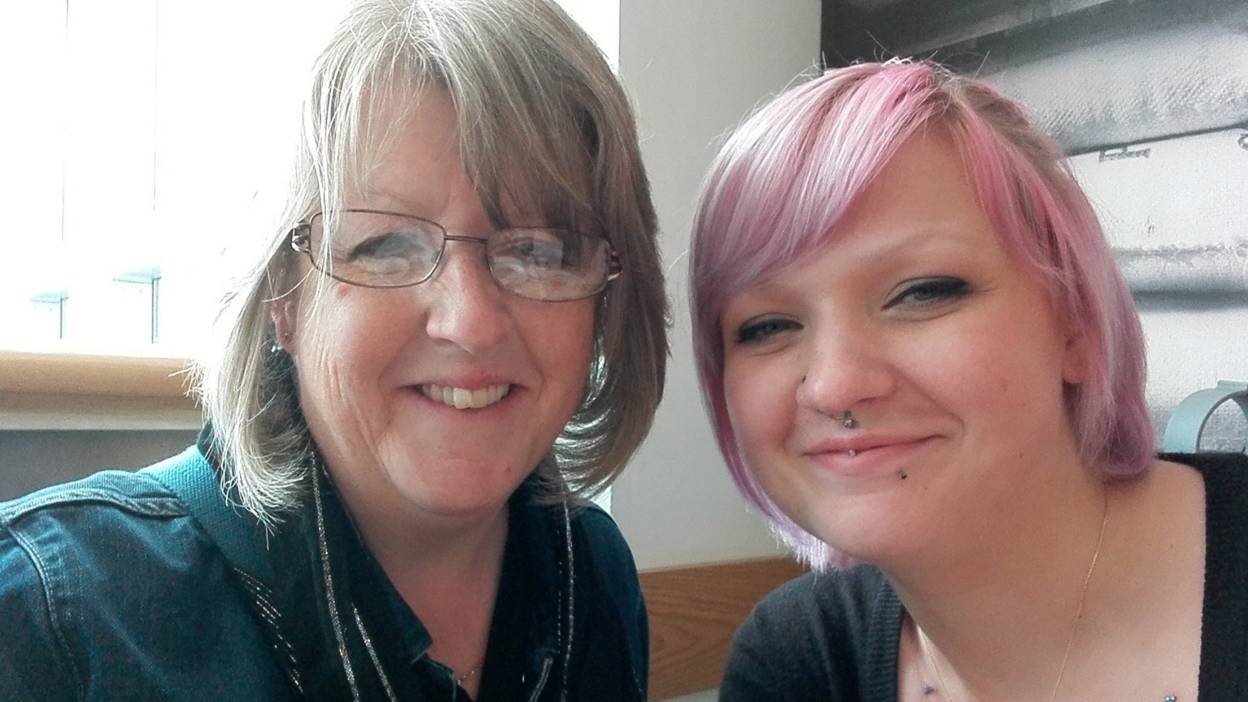 BBC Three
BBC Three
Becky and her mum
Some people would now describe me as in recovery, but I don’t like using that word. I’m still learning to cope, and the smallest things can set me off, make me want to stop eating, or want to do more exercise.
For example, about a year and a half after being discharged from the Eden Unit, I went back to visit the staff.
Seeing the girls in there, how skinny they were, a tiny part of me was still jealous of how they looked. I know that’s not right, because they’re in hospital. They’re ill, frail and scared.
At the moment, I'm working hard to get a range of movement back in my feet. So I can go out on a bike, or go out dancing, like I used to. I just try to take every day as it comes.
As told to Catriona White
For help and support with the issues raised above click here and here.
